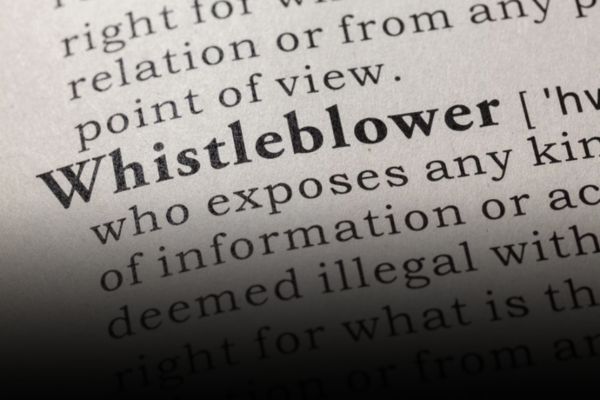Whistleblowing
The movies tend to portray whistleblowing at the two extremes: either the hero rides off into the sunset when justice eventually prevails or is silenced by big corporations that get away with the unthinkable.
The reality is probably somewhere in between, not quite as romantic, or desperate, as Hollywood makes it out to be.
The fact is that society now realise and value the important role of whistleblowers in exposing all sorts of corruption. That is why laws have been updated to provide people who speak up with greater protection.
There are, however, important rules and regulations to follow when you do decide to expose something and it is advisable to get legal help as early on in the process as you can.
What is whistleblowing
Whistleblowing is the exposure of serious wrongdoing in an organisation to the public or the authorities. Whistleblowers are often employees, but can be officers, contractors, associates, trustees, custodians, or investment managers of the organisation. Even spouses, relatives and dependants of these people are entitled to whistleblower protections.
What you are entitled to
The first thing to know is that you can stay anonymous. The second is that there are rules about making disclosures.
It is also important to remember that you have to expose more than a complaint about being mistreated at work – there has to be some form of dishonesty or illegality.
Fortunately, you do have a right to make disclosures to your lawyer. Gillis Delaney will guide you through the whole process to make sure you stay on the right side of the law and any employment policies.
The whistleblowing process
Whistleblowing laws can be intimidating as different rules apply in different scenarios. For example, working in the public sector could mean that you have different options than someone working in the private sector. We will help you do the right thing in the right way.
You should keep the following basic steps in mind if you do decide to embark on this process.
We have helped many clients follow their conscience. Speak to us today to find out exactly what your rights are and how you can make sure you are afforded all the protections you are entitled to.




